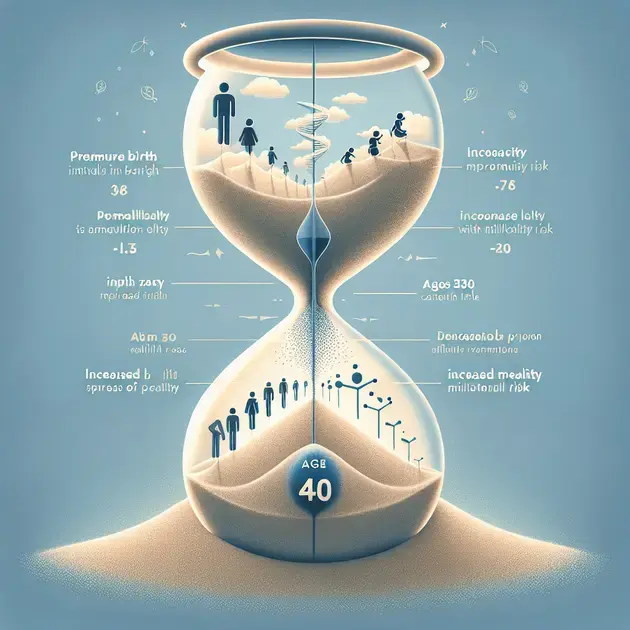Preterm Birth and Increased Mortality Risk
Being born preterm, or before 37 weeks of gestation, has been found to be linked to a higher likelihood of mortality
from birth onwards until the third or fourth decades of life. This significant finding emphasizes the long-term
implications of preterm birth and the need for increased attention and support for individuals who were born
prematurely.
Preterm birth, a global health concern, affects approximately 15 million babies every year, accounting for about
11% of all births worldwide. Babies born preterm are at a higher risk of various health complications, both in
the short and long term. These complications can range from respiratory difficulties and neurodevelopmental
disorders to cognitive impairments and chronic health conditions.
Numerous studies have explored the association between preterm birth and mortality rates throughout life. These
studies consistently suggest that being born prematurely increases the likelihood of death during infancy,
childhood, adolescence, and even into adulthood. The exact reasons for this increased risk remain complex and
multifactorial, involving both biological and environmental factors.
In the short term, preterm infants often require specialized medical care, such as assistance with breathing,
feeding, and maintaining body temperature. Despite advances in neonatal medicine, preterm babies remain
vulnerable to infections, organ immaturity, and other complications that may contribute to early mortality.
However, it is crucial to note that advancements in neonatal care have significantly improved the survival rates
among preterm infants in recent decades.
Furthermore, the long-term health consequences of preterm birth can extend well into adulthood. Preterm
individuals may face a higher prevalence of chronic health conditions, including cardiovascular diseases,
respiratory disorders, and metabolic abnormalities. These health issues, in turn, can increase the risk of
premature death in adulthood.
The increased mortality risk associated with preterm birth might also be influenced by socioeconomic factors.
Individuals born prematurely, particularly those from disadvantaged backgrounds, may face challenges such as
limited access to healthcare, educational resources, and social support networks. These factors can further
contribute to health disparities and potentially impact life expectancy.
In conclusion, the association between preterm birth and increased mortality risk from birth until the third and
fourth decades of life underlines the need for continued research and support for this vulnerable population.
Efforts should focus on understanding the underlying mechanisms driving this association and implementing
interventions to mitigate the long-term health consequences of being born preterm. By providing targeted
healthcare and support systems, we can strive to improve the outcomes and quality of life for individuals who
were born prematurely.
Being born prematurely is linked to a higher risk of mortality from birth until the ages of 30 and 40.
